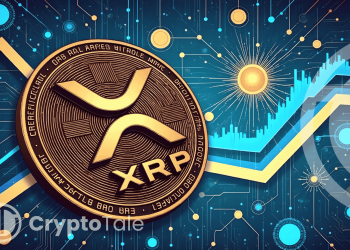As Ripple, a prominent player in the cryptocurrency industry, continues to grapple with legal challenges in the United States, the firm is making strides on the international stage. Ripple has been selected to participate in the Hong Kong Monetary Authority’s (HKMA) digital Hong Kong dollar (e-HKD) pilot program, wherein the company would debut its real estate asset tokenization solution.
Ripple’s legal challenges are spearheaded by attorney John E Deaton, who represents a group of XRP holders in a protracted legal battle against the US Securities and Exchange Commission (SEC). The lawsuit, which has reportedly cost Ripple 200 million dollars in defense, is widely considered overreaching and harmful to investors, according to Deaton, who tweeted:
“Ripple to Showcase Real Estate Asset Tokenization Solution as part of the Hong Kong Monetary Authority’s Inaugural e-HKD Pilot Program”
— John E Deaton (@JohnEDeaton1) May 18, 2023
Meantime, in the U.S., that same American 🇺🇸 company is on its 200th million dollar defending a grossly over broad lawsuit that hurt investors https://t.co/hdu9iuQLqN
Despite the ongoing legal proceedings, Ripple is moving forward with significant technological advancements. The firm would work in tandem with Taiwan’s Fubon Bank and others to demonstrate equity release with tokenized assets using a retail version of the e-HKD CBDC. This process, also known as a reverse mortgage, lets homeowners access the equity in their homes, with repayment due only when the house is sold, or the borrower passes away.
Ripple’s involvement is part of the second phase of the e-HKD program, aimed at delving deeper into use cases and addressing related issues. The experiences gained in this phase will help HKMA decide whether to go live with an e-HKD at a later stage, as per James Wallis, Ripple’s vice president of central bank engagements and CBDCs.
Per the official announcement, the pilot would employ Ripple’s new CBDC product, the Ripple CBDC Platform, built on a private ledger using XRP Ledger technology. It would enable offline transactions and usage even without a smartphone. Wallis indirectly mentioned that previous partnerships with Montenegro, Palau, and Bhutan would also utilize this platform.












